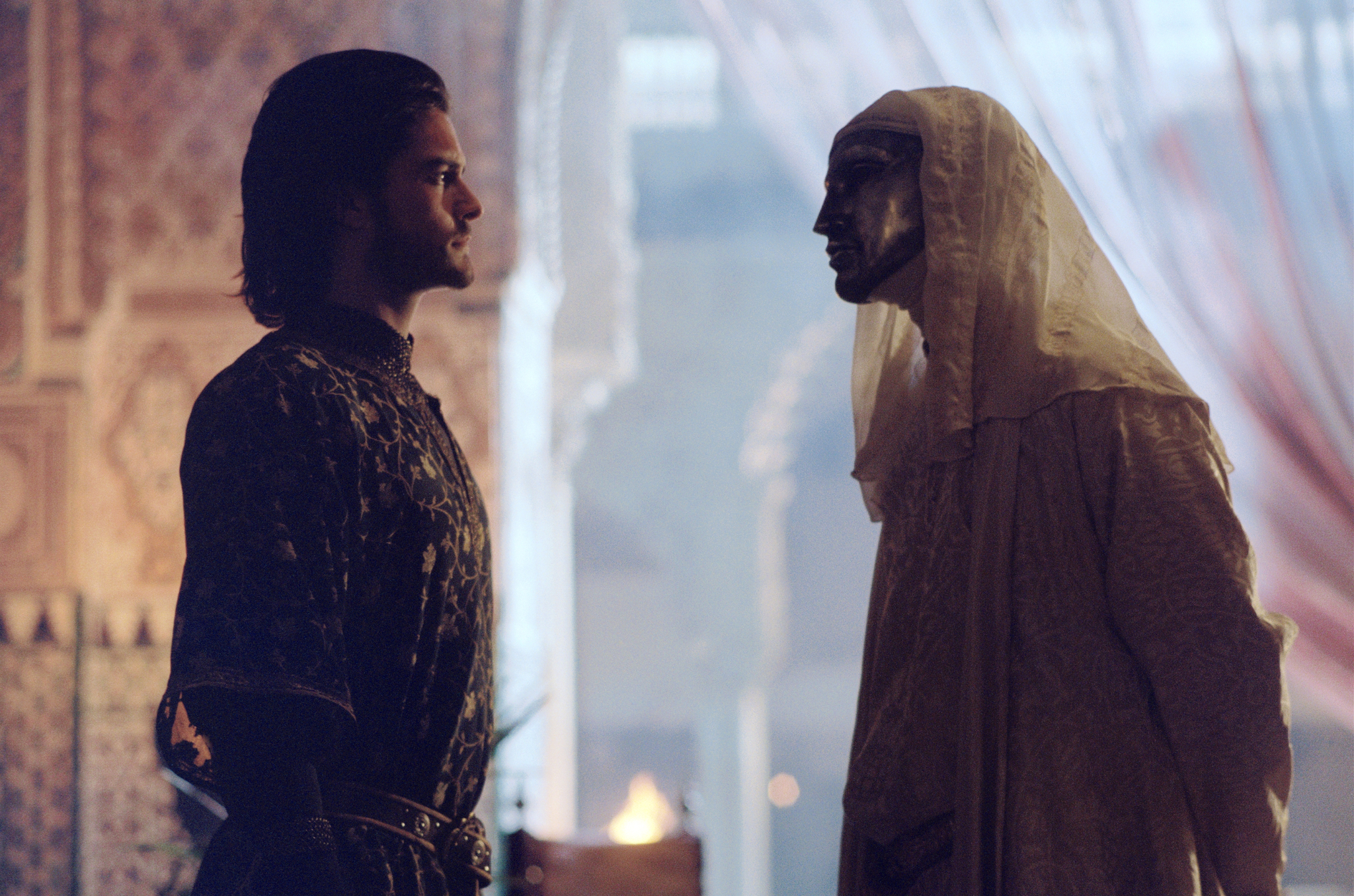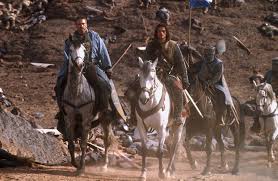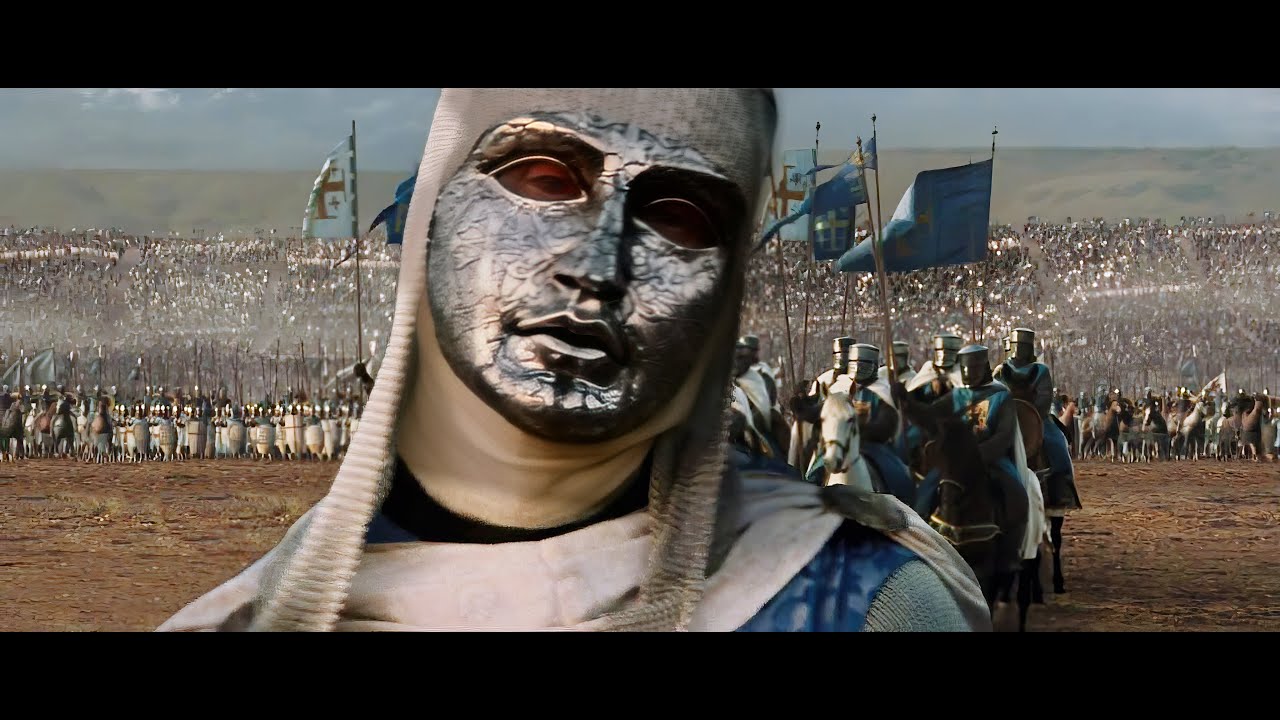🎬 Kingdom of Heaven (2005)

Kingdom of Heaven (2005) Review
Introduction
Directed by Ridley Scott, Kingdom of Heaven (2005) is an ambitious historical epic set during the tumultuous period of the Crusades. Featuring a stellar cast led by Orlando Bloom, Eva Green, and Jeremy Irons, the film explores themes of faith, morality, and the cost of war. While the theatrical release received mixed reviews for its truncated narrative, the extended director’s cut is widely regarded as a masterpiece, offering a richer and more nuanced experience.
Plot Overview
The film follows Balian (Orlando Bloom), a blacksmith grieving the loss of his wife and child. After meeting his estranged father, Godfrey of Ibelin (Liam Neeson), Balian embarks on a journey to the Holy Land, where he inherits his father’s title and lands. In Jerusalem, Balian becomes entangled in the political and religious conflicts between Christians and Muslims.
As tensions escalate, Balian forms a tenuous alliance with King Baldwin IV (Edward Norton), the leper king, and Tiberias (Jeremy Irons), the city’s marshal. However, the fanatical actions of Guy de Lusignan (Marton Csokas) and Reynald de Châtillon (Brendan Gleeson) provoke a war with Saladin (Ghassan Massoud), the Muslim leader. Balian must rise as a leader to defend Jerusalem and navigate the complex interplay of honor, faith, and survival.
Strengths
1. Stunning Visuals and Production Design
Ridley Scott’s mastery of grand-scale filmmaking is on full display. From the dusty, sun-drenched deserts to the opulent, multicultural city of Jerusalem, the film’s visuals are breathtaking. The battle scenes, particularly the Siege of Jerusalem, are meticulously choreographed and visually stunning.
2. Thoughtful Exploration of Themes
The film delves into the complexities of religion, morality, and coexistence. It challenges traditional notions of heroism and portrays the Crusades not as a binary conflict but as a nuanced struggle influenced by human ambition and frailty.
3. Strong Supporting Cast
While Orlando Bloom’s performance as Balian is understated, the supporting cast elevates the film. Edward Norton delivers a hauntingly powerful portrayal of the masked King Baldwin IV, while Jeremy Irons and Ghassan Massoud provide gravitas and depth to their respective roles.
4. Extended Cut’s Narrative Depth
The director’s cut transforms Kingdom of Heaven into a richer, more coherent film. It restores significant character development, particularly for Sibylla (Eva Green), and provides greater context for the political and personal stakes of the story.
5. Epic Musical Score
Harry Gregson-Williams’ score is both grand and evocative, perfectly complementing the film’s sweeping visuals and emotional beats. The blend of Middle Eastern and Western motifs underscores the film’s themes of cultural convergence and conflict.
Weaknesses
1. Orlando Bloom’s Limited Range
While Bloom’s stoic performance suits Balian’s character arc, his lack of emotional range can make the protagonist feel less engaging compared to the film’s more dynamic supporting characters.
2. Theatrical Cut’s Narrative Gaps
The original theatrical release suffers from significant omissions, leading to rushed character arcs and a lack of clarity in the political intrigue. Many viewers felt disconnected from the story as a result.
3. Simplified Historical Accuracy
Like many historical epics, Kingdom of Heaven takes creative liberties with its portrayal of events and characters. While it captures the essence of the period, some historical inaccuracies may frustrate history enthusiasts.
Themes and Symbolism
1. Faith and Tolerance
The film’s portrayal of religion emphasizes the importance of mutual respect and understanding. Both Christian and Muslim leaders are depicted as capable of great honor and cruelty, challenging simplistic narratives about the Crusades.
2. Leadership and Sacrifice
Balian’s journey reflects the burdens of leadership and the sacrifices required to uphold one’s values. His decisions during the Siege of Jerusalem highlight his commitment to humanity over conquest.
3. The Cost of War
The film underscores the devastating impact of war on individuals and societies. The destruction of Jerusalem serves as a poignant reminder of the human cost of ambition and fanaticism.
Visual and Technical Aspects
1. Cinematography
John Mathieson’s cinematography captures the stark beauty of the Holy Land, juxtaposing sweeping landscapes with intimate character moments. The use of light and shadow enhances the film’s visual storytelling.
2. Set and Costume Design
The film’s attention to detail in set design and costumes immerses viewers in the 12th-century world. From intricate armor to the vibrant streets of Jerusalem, every element feels authentic and lived-in.
3. Editing
The editing in the director’s cut provides a smoother and more cohesive narrative. While the theatrical cut feels rushed, the extended version allows scenes to breathe, enhancing the emotional and thematic depth.
Final Verdict
Kingdom of Heaven (2005) is a visually stunning and thematically rich epic that balances action with thought-provoking storytelling. While the theatrical cut falls short in narrative cohesion, the director’s cut elevates the film into a masterpiece of historical drama. With its exploration of faith, leadership, and the human cost of war, Kingdom of Heaven remains a standout in Ridley Scott’s filmography.
Rating: 8/10 (Theatrical Cut)
Rating: 9.5/10 (Director’s Cut)
